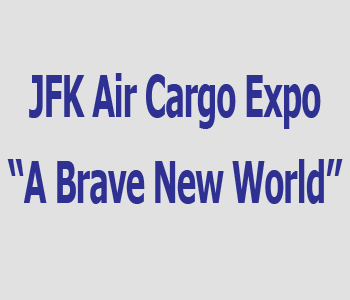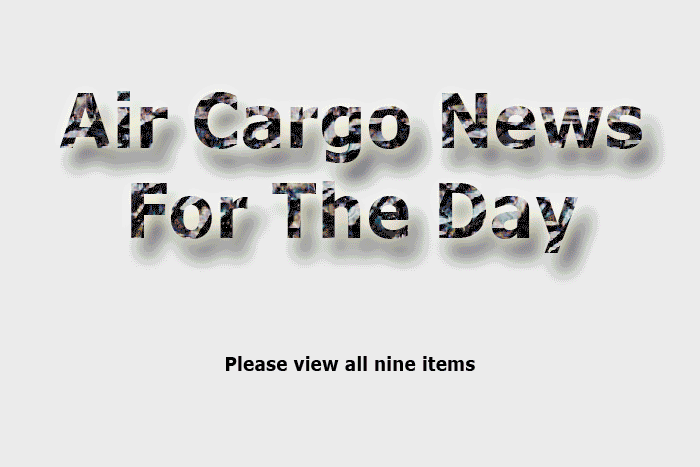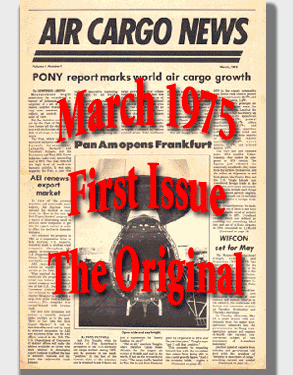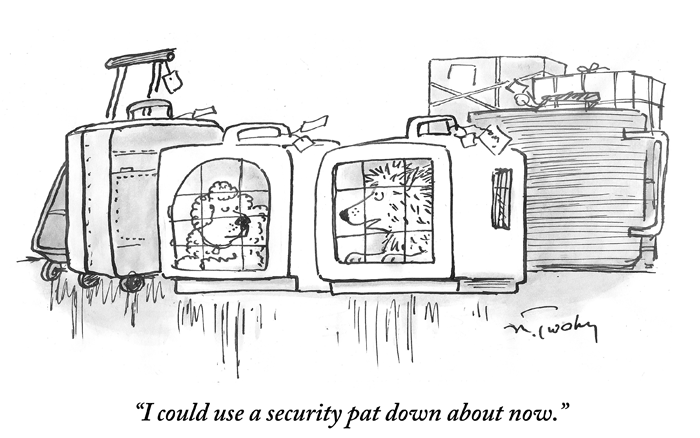
 oday’s
international trade demands the traded goods arrive just in time—safely,
securely, in an increasingly sustainable manner and, more than ever, at
reasonable costs. oday’s
international trade demands the traded goods arrive just in time—safely,
securely, in an increasingly sustainable manner and, more than ever, at
reasonable costs.
Economic factors are not just keywords; they set the new “norm”
throughout the logistics industry.
All of this brings along cost increases, especially outside of the flown
portion of the supply chain, so the air freight industry must learn how
to address these changes in a landscape of increasing competition with
other modes of transport.
Shippers have been under pressure
to cut distribution costs.
However, airfreight remains indispensable
and is the best choice of transport for higher values and smaller quantities.
Sensitive cargo also prefers the air.
As the air cargo industry increases its
importance, so does the need for skilled freight forwarders, which are
able to cope with the high pressures of delivering goods in a customer
oriented or customized manner.
Freight forwarders thrive at skillfully
answering their clients’ needs and consistently delivering the best
combination of price and quality.
| Forward
To Some Important Points |
Today, thanks to a more efficient
routing network and logistics instruments, the exporter's goods may become
more competitive in new markets.
Throughout the years, freight forwarders
have developed their skills and constantly improved them.
They offer a large variety of value-added
services (see the description of services on the FIATA website).
All this happens in compliance with a tremendous
and increasing need to deal with the complexity of more and more stringent
safety and security requirements.
Forwarders meet these challenges through
the use of contemporary methodologies, techniques, and precious know-how.
The forwarder serves the global trade by
procuring added value, which goes far wider than arranging for international
transportation and Customs.
The forwarder has become in recent years
the main facilitator of international trade and is thus placed at the
heart of international goods traded.
Since the 2008 financial crisis,
the air cargo industry has been stagnant and has experienced very little,
if any growth. According to Air Cargo Management Group (ACMG), air freight
traffic declined about 1 percent from 2010 to 2011, and annual growth
averaged just 2.6 percent from 2001 through 2011, this was less than half
the historic rate. Additionally, major air cargo carriers saw a decrease
in cargo revenues.
Delta Cargo experienced cargo revenue decreases
of 5 percent, which culminated into a 53 million dollar loss compared
to the previous year.
One of the stronger cargo handling airports
in the world, Singapore Changi Airport, handled 152,800 tons of airfreight
last September, which was a shocking decrease of 2.5 percent year over
year.
| Can
The Stagnation Be Reversed? |
FIATA takes the view that newer avenues
of collaboration must be explored and both freight forwarders and airlines
must become more forward thinking in their collaboration. We need to make
the right investments in technology, especially in the development of
eCommerce tools, and adopt less cumbersome and less costly modus operandi.
There still is too much bureaucracy and paper surrounding the air cargo
supply chain.
In 2013, the International
Air Transport Association (IATA) acknowledged freight forwarders’
functional change and recognized that they are an integral part of a sector
that successfully transports goods worth $5.3 trillion every year.
IATA understands the importance of working
with FIATA to achieve greater efficiency for all partners in this crucial
business.
IATA’s Director General, Mr. Tony
Tyler alluded to the critical role that freight forwarding plays within
the air cargo industry when he spoke at the 2013 FIATA World Congress
in Singapore.
Many of FIATA’s practitioners do not
utilize only air transport, as FIATA is well represented in all modes,
but it is unquestionable that airfreight is paramount in the development
of the international trade. Mr. Tyler’s
message intelligently explored all the areas that are susceptible to producing
greater efficiencies in the industry, increased savings, and a more effective
approach to security and facilitation.
He identified the opportunity of enhanced
collaboration with FIATA as an element that could be crucial to the success
of both organizations.
Inter alia, Mr. Tyler stated:
“That’s our common case
for working together to deliver fundamental changes that will protect
air cargo’s value proposition to its customers. Instead of talking
about how we divide the pie amongst ourselves, we need to focus on how
we can best grow the size of the pie together. I am here today to reassure
you of IATA’s commitment to work in partnership to deliver the solutions
that will secure the future for air cargo.”
| Who
We Are Today & Tomorrow |
FIATA consists of small,
medium, and big freight forwarding companies in an increasingly competitive
market.
Focusing on efficiency and win-win situations
for all involved business partners goes in line with reasonable investments
that both forwarders and airlines are called to make in the near future,
inter alia in the area of paperless trade.
The air cargo supply chain is today so interconnected
that no single party has the resources to expand autonomously.
This is just a fact of life and all must
learn how to live with it.
The importance of the air freight sector
is constantly monitored by FIATA. FIATA’s Air Freight Institute
(AFI) has developed on-going relationships with an exceptional number
of stakeholders in the air transport industry, from non-governmental organizations,
special interest groups, government bodies, regulators, carriers, shippers,
consignors, customs groups, legal specialists, cargo risk underwriters,
and technology providers.
It is a complex galaxy of interests where
FIATA sits perfectly at ease.
From this position it can greatly contribute
to the improvement of air cargo throughout the world and it will gladly
do so, provided the requests and measures make business sense and are
not expected to come from one side only.
FIATA
& The Bigger Family |
FIATA also works closely
with other air cargo industry related Associations in a collaborative
coalition formed in 2010, the Global Air Cargo Advisory Group (GACAG).
The group consists of IATA, the Global Shippers
Forum, the International Air Transport Association (TIACA), and FIATA.
The four Associations work together to ensure the air cargo industry has
a strong, unified voice, allowing for much stronger advocacy outcomes
when working with worldwide regulatory authorities.
GACAG's current focus is air cargo security,
e-commerce (this Task Force is actually led by FIATA), Customs and trade
facilitation, and the sustainability of the global air cargo industry.
On top of FIATA’s advocacy efforts,
we also co-deliver a training program with the International Civil Aviation
Organization (ICAO) about the proper handling of dangerous goods cargo.
FIATA, alongside ICAO, strongly believe
in the benefits of training as a means to ensure a sustainable and secure
industry future. This is but one of the initiatives in training, which
is traditionally one of the strongholds for FIATA.
| Better Relations
Grow Business |
Our constituents strongly
believe that the relationship between airlines and freight forwarders
is crucial for trade.
The efficient delivery of airfreight services
is unavailable without a well-functioning relationship between airlines
and freight forwarders.
This is however in need of profound changes,
which are felt by all FIATA members and a number of airlines.
This was the reason why FIATA and IATA have
started working on the air cargo modernization program.
After Tony Tyler’s words in Singapore:
We all recognize that we need a modernized
relationship that helps build trust and treats the Forwarder-Airline relationship
as a partnership of equals.
That will lead to the enhanced cooperation
that will help industry adapt to the momentous changes it faces.
This is a modernization path with many facets,
where technology will also play an important part.

FIATA hopes that this will
come to fruition soon; FIATA Members have been and are ready to play their
part in full.
Obviously, this does not depend exclusively
on FIATA, as IATA must live up to the promise made by its CEO by swiftly
embracing the way of simplification and modernization together with us.
Rodolfo Sagel
Mr. Sagel serves as Chairman of the FIATA Airfreight Institute.
|








